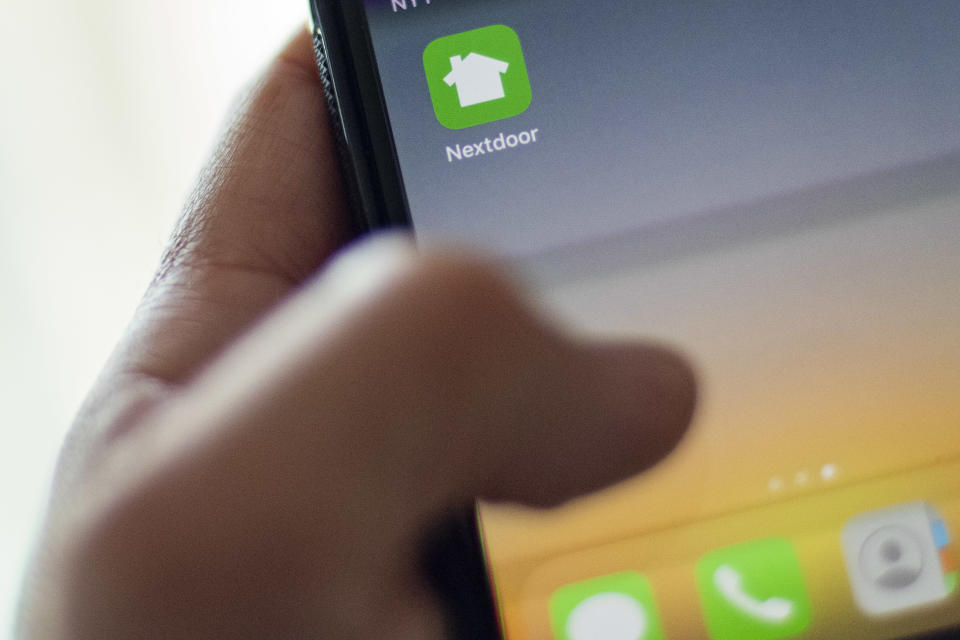Local governments embrace Nextdoor as communication tool amid coronavirus

As the coronavirus confines millions of Americans to their homes, it’s no surprise that the use of Nextdoor is way up as people rely on neighbors more.
The company says that it had almost 80% more people using its services every day in March compared to February, before the coronavirus crisis hit. (The company doesn’t share user numbers but said that it’s established in 260,000 neighborhoods globally and is in all 50 states.)
But besides the standard fare of neighborly requests for a cup of flour, a printer, or help finding a lost cat, the platform is emerging as another channel for local governments to disseminate information — filling some of the void left by struggling local news sources.
So far, governors of California, New York, and cities like Washington, D.C., and Chicago have embraced the platform as another tool to get critical information to people who need it. California has used it to recruit volunteers and notify people about food bank and blood donations, and urged Californians to help make sure their neighbors had access to essential supplies.
Nextdoor’s platform costs nothing for governments to use and has proved an easy and effective way for cities to get messaging out since users who live within their jurisdiction are automatically set to “follow” the updates from their public servants, unlike Twitter, Facebook, or a newsletter – something the company calls “instant distribution.” When you sign up for Nextdoor, they verify your address.

Like those other social media platforms, Nextdoor joins the radio, TV, government website, hotline, robocall, and text message alert as ways to reach people with important information.
Nextdoor is doubling down on its use as a government communication tool. About a month into the lockdown, Nextdoor announced it acquired Neighborland, a platform started by Dan Parham that allows cities to connect to communities on public engagement issues such as transportation planning. Parham joined Nextdoor with the company as its new head of public agency.
“Government has never been so critical to the safety of our neighborhoods right now,” Parham told Yahoo Finance. “They’re playing such a critical role in getting out trusted information that’s localized.”
With Nextdoor’s acquisition of Neighborhood, the company is looking to scale its government arm. So far, posts from government agencies are among the most successful.
“We can see in the data that our members are very interested in that trustworthy info from government agencies,” said Parham. “That content performs really well in the Nextdoor ecosystem.”
Of course, Nextdoor can’t be the only tool. Still a young platform, it doesn’t have ubiquitous penetration in neighborhoods. But Parham said that so far, it’s worked out well for cities and states.
In terms of time spent on the platform, “the public agencies see Nextdoor as very cost effective,” said Parham.

So far 4,500 public agencies use Nextdoor to disseminate targeted information to citizens — and the COVID crisis makes it likely more will join. Even since March, the use by government agencies has tripled.
Government communication is just one aspect of this. Parnham said the company has seen relationships between neighbors solidify, catalyzed by the crisis. The company has seen a 262% increase in members helping each other since January, and 17x increase in member conversations about supporting local business.
Of course, that doesn’t mean that Nextdoor is immune to troubles similar to that of other social networks with less rigorous verification processes. There’s also a lot of people who have used Nextdoor as a place to vent about neighbors not wearing masks or practicing proper social distancing techniques, indicating there may be somewhat of a learning curve for etiquette.
But Parnham, who worked in New Orleans post-Hurricane Katrina, said that there’s a lot of evidence that shows that crises consistently strengthen neighborly bonds.
—
Ethan Wolff-Mann is a writer at Yahoo Finance focusing on consumer issues, personal finance, retail, airlines, and more. Follow him on Twitter @ewolffmann.
5 key ways healthcare could change post-coronavirus: analysts
Here's a list of CEOs taking pay cuts amid the coronavirus crisis
Coronavirus: Food delivery is 300 times more popular vs. a month ago, according to Yelp data
Follow Yahoo Finance on Twitter, Facebook, Instagram, Flipboard, LinkedIn, and YouTube.